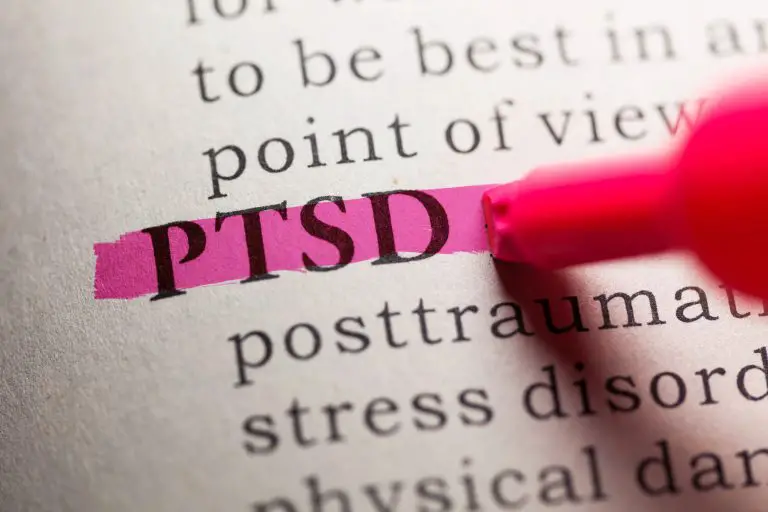35 Engaging Couples Therapy Activities for a Stronger Connection

As a couple’s therapist, I’ve witnessed the transformative power of engaging in activities to strengthen the connection between partners. These activities, specifically for couples therapy, can help build trust, enhance communication, and deepen the emotional bond between partners.
Understanding Couples Therapy is the first step towards building a stronger relationship. It’s important to note that couples therapy is not a judgmental space but a safe and supportive environment. It’s where couples can work through their issues and learn new skills to improve their relationship. We will explore 35 engaging couples therapy activities you can use to improve your relationship and strengthen your bond, all within a comforting and secure setting.
Understanding Couples Therapy Activities
Couples therapy intervention and activities are not just about resolving conflicts; they are about fostering a deeper understanding and compassion between partners. The goal is for each partner to walk away from a session or activity feeling more understood by their partner and compassionate to their partner’s experience. These activities are designed to help couples work through their issues and develop a stronger connection, creating a space for empathy and mutual growth. Some of the most effective couples therapy activities include communication exercises, problem-solving activities, and intimacy-building exercises.
Benefits of Couple’s Therapy Activities
Effective communication is essential in any relationship. Couples therapy activities focusing on communication can help couples learn how to express themselves better and listen to each other more effectively. Problem-solving activities can help couples work through their issues and find solutions for both partners. Intimacy-building exercises can help couples improve their physical and emotional connection and safety in the relationship.
It is important to note that couples therapy is not a one-size-fits-all approach. Every couple is unique, and the therapy process must be tailored to meet the specific needs of each couple. A skilled therapist will work with the couple to identify their issues and develop a treatment plan tailored to their needs.
35 Engaging Couples Therapy Activities

- Appreciation Exercise: Each partner lists three things they appreciate about the other person.
- Communication Game: Play a game where you discuss a topic without interrupting each other.
- Relationship Timeline: Create a timeline of significant events in your relationship, highlighting positive and negative moments.
- Love Maps: Use the Gottman Institute’s Love Maps exercise to deepen your understanding of each other’s inner worlds.
- Conflict Resolution Role Play: Act out common conflicts and practice healthily resolving them.
- Dream Date Planning: Plan your dream date together, incorporating each other’s interests and desires.
- Vision Board: Create a vision board illustrating your shared goals and aspirations.
- Bucket List: Make a bucket list of things you want to do together in the future.
- Gratitude Journal: Keep a joint gratitude journal where you write down things, you’re thankful for in your relationship.
- Five Love Languages Quiz: Take the Five Love Languages quiz together to understand better how you each express and receive love.
- Sensory Exploration: Explore each other’s senses by engaging in activities like blindfolded taste tests or listening to music together.
- Appreciation Letters: Write letters expressing your appreciation for each other and exchange them.
- Memory Jar: Fill a jar with written memories of happy moments in your relationship and read them together.
- Emotional Check-ins: Set aside time each week to check in with each other emotionally and discuss how you’re feeling.
- Relationship Values: Discuss your individual values and how they align or differ in the context of your relationship.
- Trust-Building Activities: Engage in trust-building exercises such as blindfolded trust walks or trust falls.
- Mindfulness Practice: Practice mindfulness together through activities like meditation or deep breathing exercises.
- Conflict Resolution Worksheets: Worksheets or exercises facilitate constructive conflict resolution.
- Role Reversal: Take turns stepping into each other’s shoes and seeing things from your partner’s perspective.
- Intimacy Building Exercises: Practice non-sexual intimacy through activities like cuddling, hand-holding, or eye gazing.
- Fantasy Sharing: Share your fantasies and desires with each other in a safe and non-judgmental environment.
- Appreciation Ritual: Establish a daily or weekly appreciation ritual where you express gratitude for each other.
- Random Acts of Kindness: Surprise each other with random acts of kindness to show your love and appreciation.
- Adventure Planning: Plan an adventure together, whether a hike, a road trip, or trying a new activity.
- Shared Hobby: Find a hobby or activity you enjoy and do it together regularly.
- Couples’ Book Club: Read a book together and discuss it as a couple, focusing on how it relates to your relationship.
- Cooking Together: Cook a meal together, try out new recipes, and enjoy the collaboration process.
- Photo Album Creation: Create a photo album or scrapbook of your favorite memories together.
- Relationship Check-up Questionnaire: Use a relationship assessment questionnaire to evaluate your relationship’s strengths and areas for growth.
- Future Planning: Discuss your long-term goals and plan for the future together.
- Weekly Date Nights: Schedule regular dates to prioritize quality time together.
- Laughter Therapy: Watch a funny movie or comedy show together and enjoy a good laugh.
- Appreciation Rituals: Create daily or weekly rituals where you express gratitude for each other.
- Creative Expression: Engage in creative activities, such as painting, writing, or music-making.
- Relationship Vision Board: Create a vision board that represents your shared dreams and goals for the future.
Communication Building

Effective communication is the cornerstone of a strong relationship. Couples who can communicate effectively are more likely to have a stronger connection and a healthier relationship. More securely attached couples can better zoom out and see “the bigger picture” instead of getting caught in the detail or “weeds” I often call it. In turn, they can re-attune faster and de-escalate much more effectively. Here are some communication-building activities that can help couples improve their communication skills:
Active Listening Exercises

Active listening exercises can help couples improve their ability to listen to each other and understand each other’s perspectives. Here are some active listening exercises that couples can try:
- Mirroring Exercise: In this exercise, one partner speaks while the other listens and then repeats what they heard. This exercise helps couples practice active listening and ensures both partners feel heard and understood.
- Summarizing Exercise: In this exercise, one partner speaks while the other listens and summarizes what they heard. This exercise helps couples practice active listening and ensures that both partners are on the same page.
Reflective Dialogue Prompts
Reflective dialogue prompts can help couples have more meaningful conversations and understand each other’s perspectives. Here are some reflective dialogue prompts that couples can try:
- “What I hear you saying is…” Prompt: In this prompt, one partner summarizes what the other partner said and asks if they got it right. This prompt helps couples practice active listening and ensures both partners feel heard and understood.
- “Tell me more about…” Prompt: In this prompt, one partner asks the other to elaborate on something they said. This prompt helps couples have more meaningful conversations and understand each other’s perspectives.
Couples can improve their communication skills and build stronger connections by practicing these communication-building activities. The goal is not for couples to agree on everything but to attempt to understand each other.
Activities for Emotional Connection

As a couple’s therapist, I have found that emotional connection and attunement are some of the most important aspects of a healthy and happy relationship. Here are some activities that can help couples strengthen their emotional connection:
Emotionally Focused Conversation Starters
One of the best ways to deepen emotional connection is through meaningful conversations. Emotionally focused conversation starters can help couples explore their feelings and thoughts in a safe and supportive environment. Here are some conversation starters that can help:
- What was your favorite memory from our relationship so far?
- What do you appreciate about me that you haven’t told me before?
- What is something you’re afraid to tell me?
Affectionate Gestures
Physical touch and affection can also help strengthen emotional connection. Oxytocin, known as the cuddle hormone, is only released when a physical touch occurs, such as kissing, hand-holding, and hugs. When this chemical is released into the brain, we experience decreased anxiety, feel more trusting, and become more secure with our partners. Here are some affectionate gestures that couples can try:
- Hugging for at least 20 seconds
- Holding hands during a walk
- Cuddling while watching a movie
Remember, emotional connection takes time and effort to build. These activities can be a great starting point for couples therapy, but it’s important to tailor them to each couple’s unique needs and preferences.
Trust-Building Activities

Trust is the foundation of any strong relationship. Without trust, couples may struggle to communicate effectively, feel emotionally disconnected, and experience difficulties in their physical intimacy. Fortunately, many engaging couples therapy activities can help build trust and strengthen the bond between partners.
Vulnerability-Building Activities
One of the most effective ways to build trust in a relationship is by sharing vulnerability with your partner. Vulnerability-building activities can help couples connect deeper and create a safe space for emotional expression. In my practice, moments of vulnerability are opportunities for a deeper connection between couples. Here are a few examples of vulnerability-building activities that I often recommend to my clients:
- The Appreciation Game: In this activity, partners take turns expressing appreciation for each other. The goal is to focus on specific qualities or actions that you appreciate about your partner rather than general statements. This activity can help partners feel seen and valued by each other, which can increase feelings of trust and connection.
- The “I” Statement Exercise: This exercise encourages partners to express their feelings using “I” statements rather than blaming or criticizing their partner. For example, instead of saying, “You never listen to me,” you might say, “I feel unheard when I try to talk to you.” This exercise can help partners communicate more effectively and reduce defensiveness, increasing trust and intimacy.
Trust Fall Exercises
Trust fall exercises are a classic team-building activity that can be adapted for couples therapy. These exercises can help partners build trust by relying on each other and practicing vulnerability. Here are a few examples of trust fall exercises that I recommend:
- The Blindfolded Trust Fall: In this exercise, one partner is blindfolded and stands with their back to the other partner. The standing partner then guides the blindfolded partner to fall backward, catching them before they hit the ground. This exercise can help partners practice trust and communication.
- The Guided Trust Walk: In this exercise, one partner is blindfolded, and the other partner guides them through a simple obstacle course. The blindfolded partner must trust their partner to guide them safely through the course. This exercise can help partners practice trust, communication, and teamwork.
Overall, trust-building activities can be a powerful tool for couples. By practicing vulnerability, communication, and reliance on each other, partners can build a stronger, more trusting, and secure relationship.
Intimacy Boosters Activities

I have found that intimacy is another key component of a strong and healthy relationship. Intimacy can be defined as a deep emotional connection between two people that involves trust, vulnerability, and physical closeness. To help couples build and strengthen their intimacy, I encourage couples to incorporate the following activities into their relationship:
Sensory exploration activities
Engaging in sensory exploration activities can help couples connect deeper by increasing their awareness of each other’s physical sensations. Some examples of sensory exploration activities include:
- Blindfolded touch: One partner wears a blindfold while the other partner touches them with different textures, such as silk, fur, or feathers.
- Scented massage: One partner gives the other a massage using scented oils while the other tries to guess the scent.
- Taste testing: Blindfolded, partners take turns feeding each other different foods to see if they can guess what they are.
Relationship vision board creation
Creating a relationship vision board can be a powerful way for couples to visualize their goals and dreams for their relationship. Some tips for creating a relationship vision board include:
- Use images and words that represent your shared values and goals.
- Display the vision board in a prominent place where you can see it daily.
- Update the vision board regularly as your goals and priorities change.
Date Night Ideas
Regular date nights can help couples stay connected and strengthen their intimacy. Some ideas for date nights include:
- Cooking a meal together at home
- Going for a hike or walk in nature
- Trying a new activity, such as a dance class or pottery workshop
Incorporating these intimacy boosters’ activities into a couple’s relationships can help partners build a deeper emotional connection and a stronger bond overall.
Problem-Solving Activities

As a couple’s therapist, I often recommend problem-solving activities to help couples develop stronger communication skills and work through conflicts healthily. Here are some effective problem-solving activities that I have found to be helpful in my practice:
Conflict resolution role-playing
Role-playing is a powerful tool that can help couples develop better communication skills and learn how to resolve conflicts healthily. In this activity, couples play different roles in a hypothetical conflict scenario. This can help them practice active listening, expressing their feelings, and finding common ground.
Collaborative problem-solving scenarios
In this activity, couples work together to solve a hypothetical problem. This can help them learn how to collaborate and find solutions. For example, they might be asked to plan a hypothetical vacation together or devise a plan for managing their finances.
Individual Journaling
Journaling is a great way for couples to reflect on their thoughts and feelings and gain insight into their relationship. In this activity, each partner is given a journal and asked to write down their thoughts and feelings about a particular issue. This can help them gain clarity and perspective and can also help them communicate more effectively with their partner. Journaling is a great exercise to help each partner regulate their nervous system, avoid escalating conflict, and better communicate their emotions from a more regulated state.
Stress-Reduction Techniques
Stress can be a major source of conflict in relationships. Couples learn stress-reduction techniques such as deep breathing, meditation, or yoga in this activity. These techniques can help them manage their stress levels and reduce relationship tension.
Overall, problem-solving activities can be powerful for couples seeking to strengthen their connection and improve their communication skills. Couples can learn how to work together more effectively by practicing these activities regularly and develop a stronger, healthier relationship.
Fun and Laughter Activities

Engaging in fun and laughter activities is an effective way to strengthen the bond between partners. These activities can help couples relax, relieve stress, and create positive memories together. Here are some fun and laughter activities that couples can do together:
Adventure Outings
Going on an adventure outing can be an exciting way for couples to bond. Activities include hiking, camping, or even trying a new extreme sport together. Adventure outings allow couples to challenge themselves, work as a team, and create new experiences they can share.
Hobby Sharing
Sharing hobbies can be a great way for couples to connect. This can include activities such as cooking, painting, or playing music together. Engaging in a shared hobby allows couples to learn from each other, support each other’s interests, and create a sense of teamwork.
Romantic Challenges
Engaging in romantic challenges can be fun for couples to connect and create positive memories. This can include activities such as planning a surprise date night, writing love letters to each other, or even creating a scavenger hunt for each other. Romantic challenges allow couples to express their love and affection creatively and help them feel more connected to each other.
Overall, fun and laughter activities can be a great way for couples to strengthen their connection. By engaging in adventure outings, hobby sharing, and romantic challenges, couples can create positive memories together and deepen their bond.
Nurturing Relationship Rituals

As a couple’s therapist, I have found that nurturing relationship rituals can go a long way in strengthening the connection between partners. These rituals can be simple yet powerful ways to show love and care for each other. Here are some effective nurturing relationship rituals that I recommend to my clients:
Future Planning Sessions
One of the most effective ways to build a stronger connection with your partner is to plan your future together. This can include short-term goals, such as planning a vacation, or long-term goals, such as buying a house. Scheduling regular future planning sessions with your partner can help you both stay on the same page and work towards your shared goals. During these sessions, make sure to listen to each other’s ideas and concerns and work together to come up with a plan that works for both of you.
Daily Rituals
Small acts of kindness or gestures that remind couples they are thought of and cared for go a long way in relationships. Leaving notes by the coffee machine before your partner wakes up, or notes in their lunch, or on their care before they head into work, shows your partner that you are thinking of them.
Evening Reflection Rituals
Too often, we get caught up in the mundaneness of our days or work weeks. Couples who have created intentional check-ins after dinner, before bed, or some time at the end of their day when there are no interruptions or other obligations find more connection and quality conversations in their day-to-day functioning that is often needed to help us slow down and be mindful of our partners and relationship.
Meditation Practices
As I mentioned, slowing down is a great way to reduce stress and anxiety, and it can also help improve your connection with your partner. Consider practicing meditation together as a couple, either in the morning or evening. You can use guided meditations or simply sit in silence together. This can be a great way to start or end your day together, and it can help you both feel calmer and more centered.
Financial Goal-Setting
Money can be a major source of stress in relationships, so it’s important to have open and honest conversations about finances. Consider setting financial goals together, such as saving for a down payment on a house or paying off debt. During these conversations, make sure to listen to each other’s concerns and work together to devise a plan that works for both of you. You can also consider meeting with a financial planner to help create a budget and set financial goals.
Overall, nurturing relationship rituals can be a powerful way to strengthen your connection with your partner. By planning your future together, practicing meditation, and setting financial goals, you can build a stronger and more loving relationship.
Activities to Build Support Systems

As a therapist, I often recommend to my clients that building a strong support system is crucial for a healthy relationship. In this section, I will discuss some activities couples can engage in to build their support systems together.
Personal Development Workshops
Attending personal development or couple’s workshops can be an excellent way for couples to build their support network. These workshops allow couples to learn new skills, connect with other like-minded individuals, and develop a deeper understanding of themselves and each other.
There are a variety of personal development workshops available, ranging from communication and conflict resolution to mindfulness and meditation. Couples can choose a workshop that aligns with their interests and goals and attend it together. This can be a great way to bond and support each other’s growth.
Building a strong support system is essential for a healthy and fulfilling relationship. Couples can strengthen their connection and develop the skills and knowledge needed to navigate challenges and maintain a strong and supportive relationship by attending personal development workshops together.
Seeking Professional Counseling When Needed
Sometimes, despite our best efforts, we may need professional help to build a support system. Seeking professional counseling when needed can be a great way for couples to get the support they need. Couples counseling can provide a safe space for couples to discuss their concerns and work through any issues they may face. It can also allow couples to learn new skills and strategies for improving their relationship. If you and your partner are struggling to build a support system, consider seeking the help of a professional counselor.
Remember, building a support system takes time and effort, but it can be well worth it in the end. Couples can create a strong foundation for their relationship by working together and supporting each other.
Tips for Successful Implementation of Couples’ Therapy Activities

As a therapist, I have found that implementing couples’ therapy activities can be challenging at times. Here are some tips that I have found to be helpful in ensuring successful implementation of these activities:
1. Be Clear and Specific
It is important to be clear and specific when explaining the activity to the couple. Make sure that they understand what is expected of them and what the goal of the activity is. This will help ensure they are fully engaged and invested in the activity.
2. Set Realistic Goals
Setting realistic goals for the activity is crucial. This will help ensure the couple does not become overwhelmed or discouraged. It is better to start with small, achievable goals and work up to more challenging ones.
3. Be Flexible
It is important to be flexible when implementing couples’ therapy activities. Modifying the activity or trying a different approach is okay if something is not working. Flexibility will help ensure the couple gets the most out of the activity.
4. Provide Feedback
Providing feedback to the couple is important. Let them know what they are doing well and what they can improve on. This will help to keep them motivated and engaged in the activity.
5. Follow Up
Following up with the couple after the activity is important. This will help reinforce what they have learned and ensure that they continue working on their relationship outside of therapy.
By following these tips, you can help to ensure that couples’ therapy activities are successful and beneficial for your clients.
Key Takeaways
- Couples therapy activities are essential for building a stronger connection between partners.
- Understanding couples therapy is important for improving communication, resolving conflicts, and strengthening relationships.
- Communication building is a key aspect of any healthy relationship and can be improved through engaging couples therapy activities.
- Drop a comment below sharing some of your favorite couple’s therapy activities!

About the Author:

Justine Bond is a Licensed Marriage and Family Therapist and an EMDRIA Certified EMDR Therapist at Infinite Healing and Wellness. Justine primarily works with adult individuals, couples, and families utilizing eye movement desensitization reprocessing (EMDR) therapy and emotion-focused therapy (EFT) treatment modalities. Justine is dedicated to helping others, looking within, and accessing the most authentic and most genuine parts of self. Justine also teaches eager students in the behavioral health sciences program at a local community college, guiding and shaping the future of mental health care professionals! When Justine is not meeting with clients or teaching, she enjoys practicing self-care with her fiancé, being outdoors or on walks with their beloved Maltipoo Charlie, and traveling to new and exciting destinations both in and out of Arizona!
Frequently Asked Questions
What exercises can help improve emotional intimacy in a relationship?
Several exercises can help improve emotional intimacy in a relationship. Some of these exercises include sharing your feelings with your partner, practicing active listening, engaging in non-sexual touch, and expressing gratitude toward each other. These activities can help couples build trust and strengthen their emotional bond.
Can you recommend any relationship-building activities for married couples?
Some relationship-building activities for married couples include taking vacations, engaging in a shared hobby, trying new experiences, and practicing forgiveness. These activities can help couples reconnect and strengthen their bond.
How can couples strengthen their bond through therapy activities at home?
Couples can strengthen their bond through therapy activities at home by practicing effective communication, engaging in shared experiences, and being open to trying new things. Couples can also benefit from practicing self-reflection and expressing gratitude towards each other.
What are some effective fun exercises for couples looking to enhance their connection?
Some effective fun exercises for couples looking to enhance their connection include playing games, going on a date night, taking a dance class, and engaging in physical activities together. These activities can help couples build trust, improve communication, and strengthen their emotional bond.
Where can I find couples therapy worksheets to practice with my partner?
Couples therapy worksheets can be found online or through a licensed therapist. These worksheets can help couples improve communication, build trust, and strengthen their emotional bond. It is important to choose worksheets that are relevant to your specific needs and goals as a couple.
What types of affirmation activities are beneficial for couples in therapy?
Some beneficial affirmation activities for couples in therapy include expressing gratitude towards each other, practicing positive self-talk, and engaging in acts of kindness towards each other. These activities can help couples build trust, improve communication, and strengthen their emotional bond.








